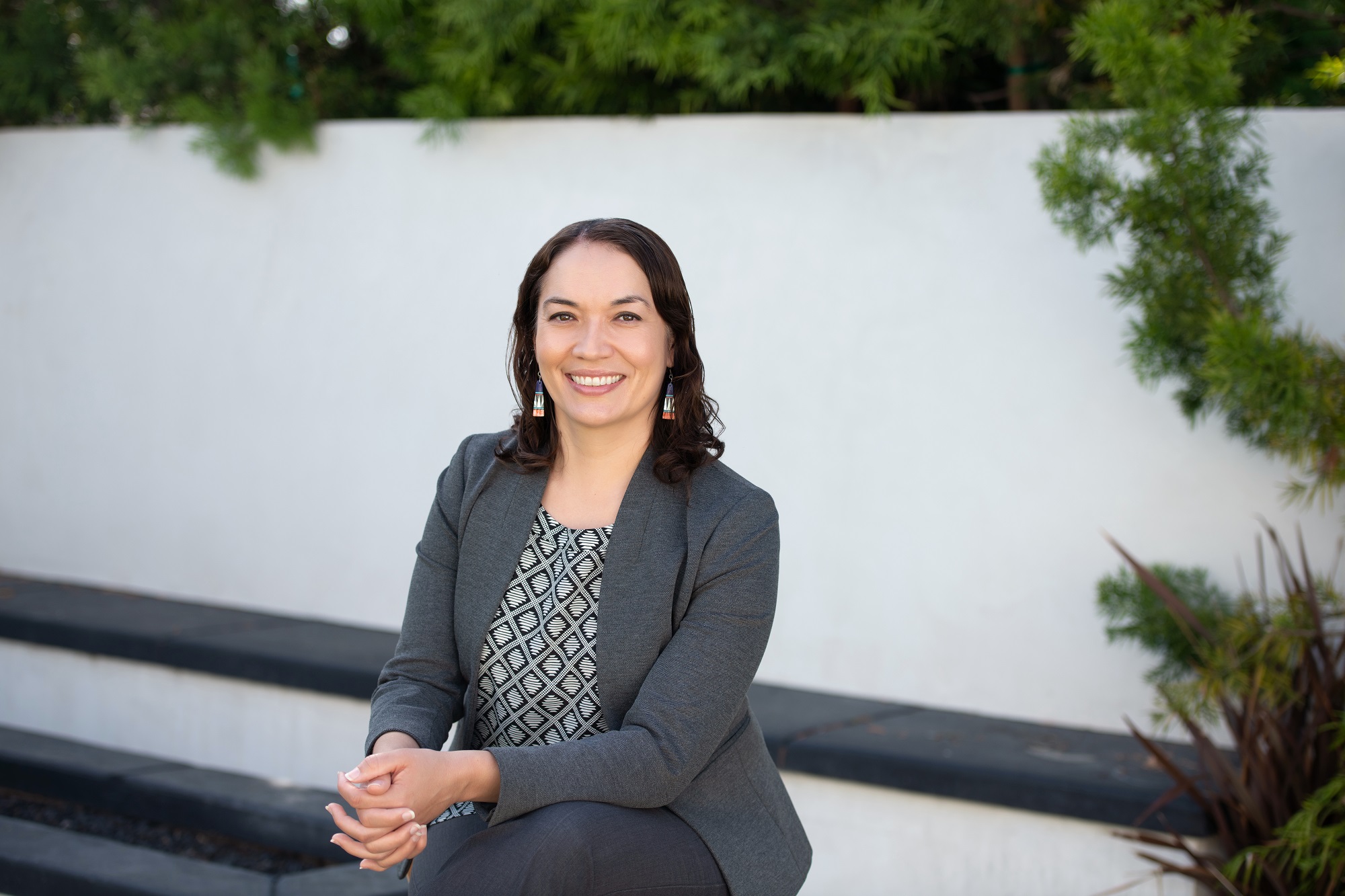First, do no harm
She’s helping create a more equitable biomedical research future for all

Stephanie Yantz
By Jonathan Riggs
Native Americans and Alaska Natives have long experienced disproportionate negative health outcomes, including lower life expectancy. Born and raised on the Navajo Nation, Nanibaa’ Garrison saw these disparities firsthand and vowed as a child to do something about them. Today, she is an associate professor at UCLA who holds appointments in the Institute for Society and Genetics, the Institute for Precision Health and the Division of General Internal Medicine & Health Services Research. Garrison also teaches bioethics for UCLA’s new genetic counseling program.
“I really found my place in bioethics exploring anthropological, sociological and historical questions of genetic research,” she says. “Most recently, I’ve been engaged in a lot of policy-related discussions with tribes to think through how to strengthen tribal governance over Indigenous data, how to ensure that tribes have the capacity to evaluate genetic research protocols and how to deliver more educational opportunities to tribes.”
Key to Garrison’s mission is building bioethical bridges between researchers working on world-changing science and communities who can benefit from it. This often involves restoring trust, explaining complicated concepts in layperson’s terms and navigating cultural differences to ensure that appropriate guidelines are mutually established, understood, agreed upon and followed. (A cautionary tale occurred in 2003, when the Havasupai Tribe successfully sued Arizona State University over misuse of their genetic samples. They won a settlement and the return of their DNA.)
“While my main focus has been with Indigenous communities, this work bleeds over into others as well,” she adds. “I identify barriers and then work with different teams to create solutions or pathways to reduce those barriers and move toward a more equitable future for all, with regard to genetics.”
It has been a special point of pride for Garrison that she can tackle certain aspects of her work with her father, a retired biology professor, and her mother, a Navajo language scholar, who both taught for many years at Diné College, the first tribally controlled and accredited collegiate institution in the United States. It’s important to her, too, that she can continue her work in Los Angeles, home to a large population of Native Americans and Alaska Natives, and at a university like UCLA.
Garrison remains equally excited about engaging with students, who approach these topics in ways that inspire and reaffirm her enduring passion for her work.
“Students often come in with grandiose ideas for change. Sometimes they aren’t achievable, but that’s OK, because I have big ideas, too,” she says. “This is a field where you face a lot of pushback, because we’re trying to accomplish very lofty goals. But I don’t look at my work as something to get done in a year or two — I see it as a lifelong commitment.”
< PREVIOUS ARTICLE | NEXT ARTICLE >




